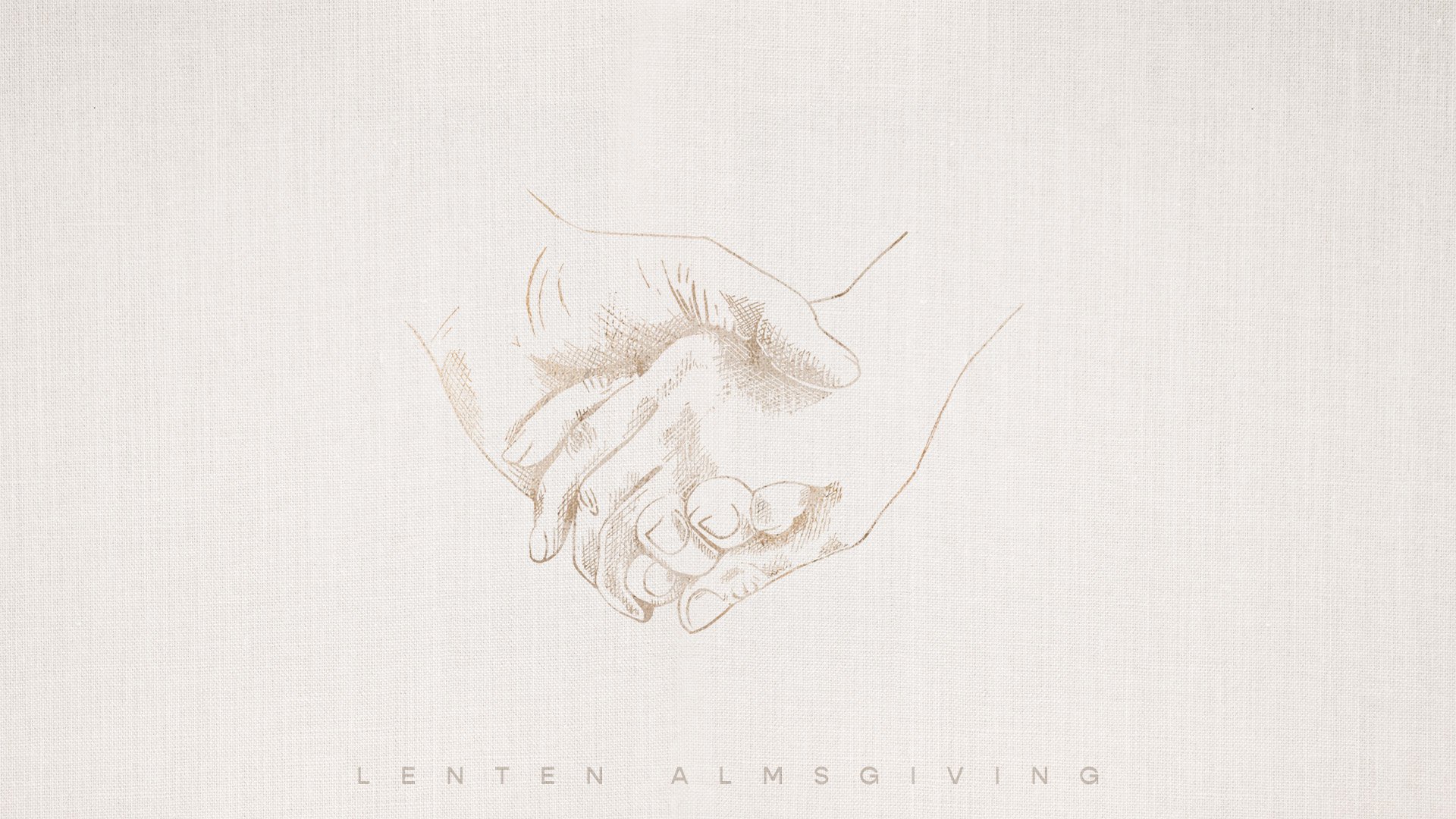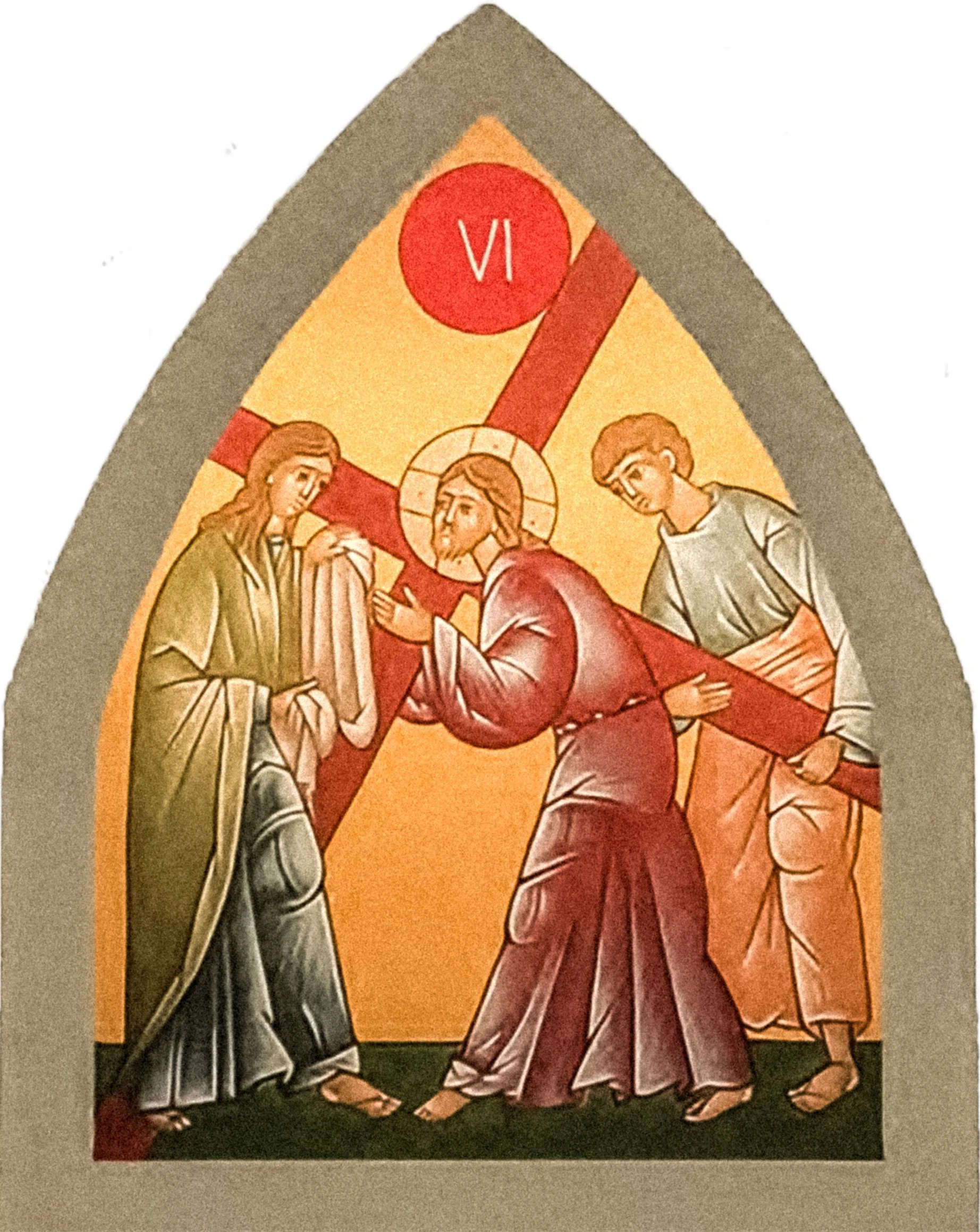
Discover Resources to Practice a Holy Lent
Lent is the period of time beginning with Ash Wednesday and ending with Holy Week when Christians pray, fast, and prepare themselves to celebrate the resurrection of the Lord Jesus. Lent lasts forty days (excluding Sundays), recalling the time when Jesus spent forty days in the wilderness, fasting and praying. (Matthew 4:1-11)
During Lent, we traditionally focus on three Lenten Disciplines:
MORNING & EVENING PRAYER
Daily Office
Read the Daily Office from the Book of Common Prayer each day.
PRACTICE WEEKLY
The Great Litany
The significance of The Great Litany is deep: It is our oldest original English language rite, it is all-encompassing and focuses our prayers for ourselves and for the world, and it is a wonderful way to begin keeping a Holy Lent.
Find The Great Litany in the Book of Common Prayer, p. 148:
View on YouTube: The Great Litany with the Rev. Canon Michael Gilton
FRIDAYS DURING LENT
Stations of the Cross
The Stations of the Cross (also called the Way of the Cross) is a liturgical devotion commemorating the last day of Jesus’ life. The devotion originated with pilgrims in Jerusalem retracing the traditional steps Jesus is believed to have followed on Good Friday. Since not all Christians could make pilgrimages to Jerusalem, however, the custom arose of replicating the devotion in congregational and individual settings, often with images or carvings on the walls of a church to commemorate each of the traditional 14 stations (or stops) on the Way of the Cross.
View on YouTube: Online Stations of the Cross
SUGGESTED DAILY DEVOTIONAL READING
Lent for Everyone, Mark - Year B
by N.T. Wright
Lent for Everyone: Mark, Year B provides you with an inspirational guide through the Lenten season, from Ash Wednesday through the week after Easter. Popular biblical scholar and author N. T. Wright provides his own Scripture translation, brief reflection, and a prayer for each of the days of the season, showing how the text is relevant to your life today. By the end of the book you will go through the entirety of Mark, along with Psalm readings for each Sunday. Suitable for both individual and group study and reflection, Wright's Lenten devotional will help you make Mark's gospel your own, thoughtfully and prayerfully, and your journey through Lent a period of rich discovery and growth.
ABOUT THE AUTHOR
N. T. Wright is the Chair in New Testament and Early Christianity at the University of St. Andrews in Scotland. He is the former Bishop of Durham in the Church of England and is a prolific author and noted New Testament scholar. His books include Scripture and the Authority of God, Surprised by Hope, Simply Christian, and Evil and the Justice of God.

SUPPORTING THOSE IN NEED
Almsgiving
This Lent, our almsgiving focus is to replenish the Parish Assistance Fund. When you give to the Parish Assistance Fund, you help step into the gap when households in our church family suffer from job loss, unforeseen medical expenses, divorce, and more. This fund is strictly supported by donations and has been depleted. When our family is burdened, we are all burdened. Please consider sacrificially giving for the needs of our church family.
Drop a check in the mail (6400 Stonebrook Pkwy, Frisco, TX 75034) with Parish Assistance in the memo line.
Drop a check in the offering box or plate with Parish Assistance in the memo line on Sunday.
Fasting
Fasting is abstaining wholly or partially from all or certain foods, for physical or spiritual health. The extent and rigor of abstinence depends largely on custom and circumstance. Ancient Jews used fasting extensively. Christ taught it and practiced it. Early Christians fasted on specific days of the week, especially Wednesday and Friday. Baptismal candidates fasted for up to two days before their baptism. By the late middle ages abstinence from food was required before the reception of communion, and western Christians also fasted during Lent by abstaining from meat. As a spiritual discipline, fasting is an act of contrition, cleansing, and preparation.
The BCP recommends fasting for the season of Lent, which Christians should observe “by self-examination and repentance; by prayer, fasting, and self-denial; and by reading and meditating on God's Word” (BCP, p. 265). The BCP designates the weekdays of Lent and Holy Week and all Fridays except in the seasons of Christmas and Easter as days of “special devotion” with “special acts of discipline and self-denial” (which normally include fasting). An exception is made for the feast of the Annunciation in Lent and feasts of our Lord on Friday. Although modern social habits have led to a decline in fasting on Fridays, and in Lent and Holy Week, the BCP calls for fasting, discipline, and self-denial on those days.


